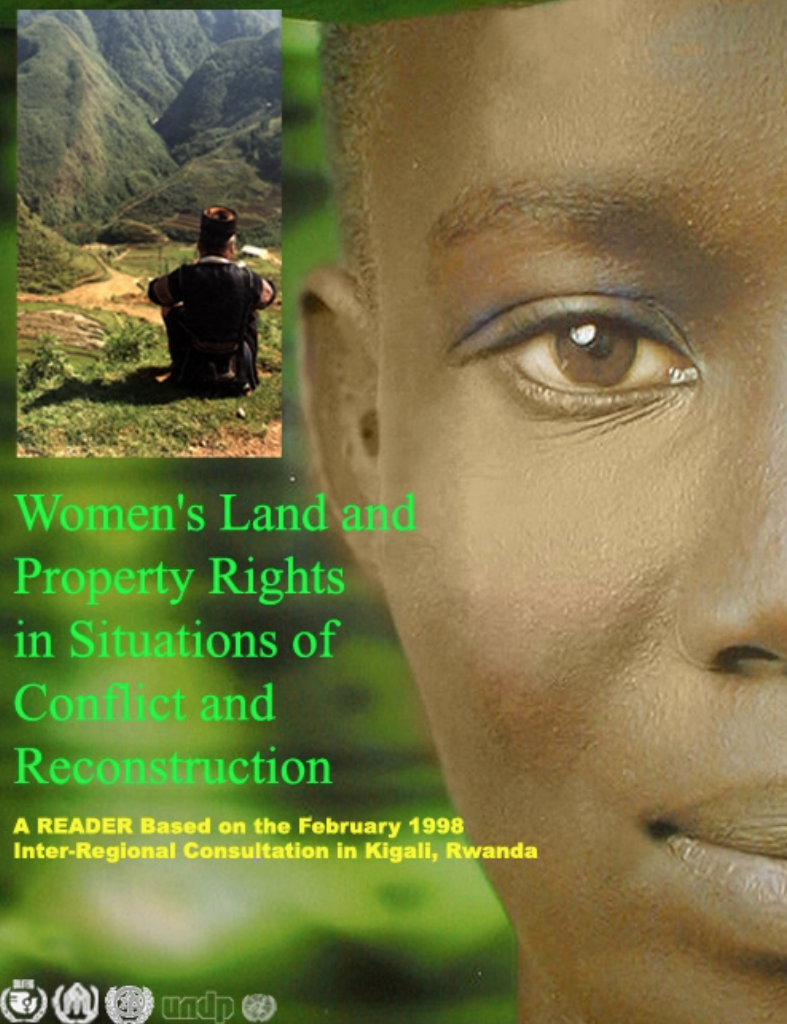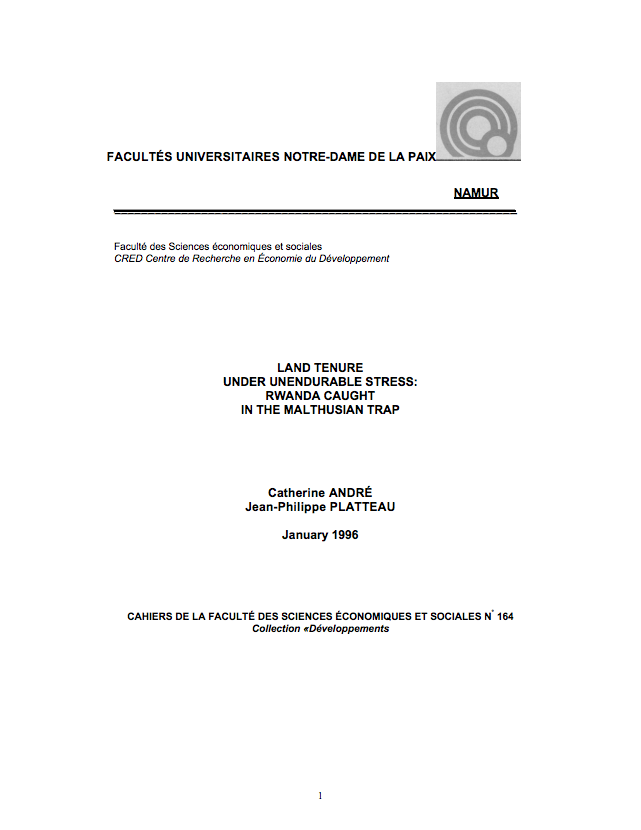The LAND Project is a five year program supported by the United States Agency for International Development (USAID). Its primary goal is strengthening the resilience of Rwandan citizens, communities and institutions and their ability to adapt to land-related economic, environmental and social changes.
Resilience is defined as “the ability to withstand or recover from difficult conditions.” It also comprises the ability of human and ecological systems to recover from shocks or difficult changes, and to transform to a better condition by responding flexibly and creatively to stress factors. In Rwanda, land tends to be one of the primary assets citizens rely on to buffer against difficult conditions and rapid change.
The project’s central objectives are twofold:
1.Increased capacity of local Rwandan institutions to generate high quality, evidence-based research on land-related issues that can be used by the Government, civil society organizations, and Rwandan citizens.
2. Increased understanding of land laws, policies, regulations, and legal judgments on land-related issues by GOR officials, local civil society organizations, research institutes and citizens.
Key outcomes of the project include:
- Holding annual National Land Research Agenda workshops to establish the research priorities of land sector stakeholders that the LAND Project will support. These workshops bring together multiple stakeholders from government, civil society and the research community;
- Supporting research on land-related issues through competitive awards to Rwandan research institutions, universities, and civil society organizations, and providing tailored capacity building assistance to improve research and advocacy capabilities;
- Offering training and other support to legal assistance providers to enhance their capacity to support women and vulnerable populations in understanding and realizing their land rights;
- Training local land authorities on the implementation of the land law and regulations.
- Carrying out research on critical land issues, including gendered land rights in practice, community rights to resources in and around protected areas, and expropriation.
- Managing a land-focused website to improve research, communications, and policy advocacy efforts that are focused on land, and to act as a vehicle for enhancing collaboration between actors working in the land sector;
- Providing organizational development support to civil society organizations supporting women’s land rights.
- Supporting innovative and coordinated communications approaches by civil society and government that enhance the knowledge of Rwandan citizens about research findings and their land rights.
Because the LAND Project is a five year endeavor, we are seeking an institution that has the interest, capacity, skills and resources to eventually take over hosting and maintenance of the website, ensuring it stays up-to-date and relevant to the land sector stakeholder community. If your organization is potentially interested in assuming management of this site, please contact us and tell us why you believe your institution would be an ideal candidate.
Members:
Resources
Displaying 141 - 145 of 149Women’s Land and Property Rights in Situations of Conflict and Reconstruction
Women constitute the majority of small farmers, particularly in sub-Saharan Africa. Yet, in countries around the world, they continue to be denied the right to own the ground that they cultivate and on which they raise their families. This publication, “Women’s Land and Property Rights in Situations of Conflict and Reconstruction,” presents a diversity of views and experiences that describe the multiple strategies being used in countries worldwide to secure women's rights to land and property.
Land Tenure under Unendurable Stress: Rwanda Caught in the Malthusian Trap
This paper reports the findings of an in-depth case study of a highly densely populated area in the Northwest of Rwanda
which has been conducted during the period 1988-1993. It
demonstrates that acute competition for land in a context
characterized by too slow expansion of non-agricultural income
opportunities has resulted in increasingly unequal land distribution
and rapid processes of land dispossession through both operation
of the (illegal) land market and evolution of indigenous tenure
Land Tenure under Unendurable Stress: Rwanda Caught in the Malthusian Trap
This paper reports the findings of an in-depth case study of a highly densely populated area in the Northwest of Rwanda which has been conducted during the period 1988-1993. It demonstrates that acute competition for land in a context characterized by too slow expansion of non-agricultural income opportunities has resulted in increasingly unequal land distribution and rapid processes of land dispossession through both operation of the (illegal) land market and evolution of indigenous tenure arrangements.
Policies on Population, Land Use, and Environment in Rwanda
The paper first describes the interactions between population growth, land use, and environment in Rwanda, a small, densely populated landlocked nation in the East-African Great Lakes region. These interactions are modelled using a conceptual framework applied to the neighboring Kivu region in Zaire, but adapted to the Rwandan case study.
Natural Resources Management: Issues and Lessons from Rwanda
This paper describes how the U.S. Agency for International Development (USAID)/Rwanda is working with the Government of Rwanda and other donors to identify and resolve key issues re-lated to the management of the country’s renewable natural resources--its forests, soils, and water. The purpose of the study
is to illustrate how small countries and Agency for International
Development (A.I.D.) Missions with limited resources can incor-
porate natural resources management into development activities




